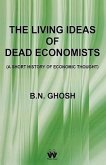This book is intended to analyze and evaluate the Statute of the International Criminal Court which was newly created at the United Nations Diplomatic Conference in Rome, Italy on 17 July 1998 (The Rome Conference or the Conference). The book addresses a host of difficult questions and common questions the new permanent International Criminal Court (The ICC or The Court) can raise and possible answers to those questions. This book also records the legislative histories of each article of the ICC Statute and evaluates legal ramifications of the Statute. Even though the United States Government has argued the Rome Statute violates the law of treaties and is not consistent with international law, the author tries to prove that the Rome Statute does not violate the law of treaties and is consistent with international law. The Rome Statute is invaluable in that it codifies the present international law and international criminal law and procedure. The Statute, which was supported by 120 states in the world, summarize the present treaty law, customary international law and general principles of law, even though some contents of the Statute were watered down by some states. The author participated in the process for the adoption of the Rome Statute as a member of the Korean Delegation to the Rome Diplomatic Conference. Korea submitted a very important proposal on the jurisdiction of the Court, which the author was involved in, and tried to bridge the gaps between the U.S position and various other states' positions. On the basis of his own reservations and experiences at the Rome Conference, the author thinks the Rome Statute has delicate balances among various interests of countries and will be a great weapon for the World to fight with against the most heinous international crimes: genocide, crimes against humanity, war crimes and crimes of aggression. Therefore, this book is an insider's observation and a legislative history of the Rome Statute. However, the views appearing in this book are not those of the Korean Government, but solely those of the author as an international law scholar and a participant in the Rome Conference. Contents: 1. Introduction; 2. Commentary on articles of the Rome statute: Part 1: Establishment of the Court; Part 2: Jurisdiction, admissibility and applicable law; Part 3: General principles of criminal law; Part 4: Composition and administration of the court; Part 5: Investigation and prosecution; Part 6: The trial; Part 7: Penalties; Part 8: Appeal and revision; Part 9: International cooperation and judicial assistance; Part 10: Enforcement; Part 11: Assembly of states parties; Part 12: Financing; Part 13: Final clauses Dr. Young Sok Kim has a B.A. (Law) and M.A. (Law) from Seoul National University, Seoul, Korea and an LL.M and J.S.D. (Doctor of the Science of Law) from the University of Illinois at Urbana-Champaign, Illinois, U.S.A. He was the Deputy Director of Treaties Division I of the Korean Foreign Ministry, Seoul, Korea and is currently Assistant Professor of International Law in the Division of Law of the AJOU University, Suwon, Korea. In 1998, he participated in the United Nations Diplomatic Conference of Plenipotentiaries on the Establishment of an International Criminal Court in Rome (the ""Rome Conference"") as a member of the South Korean Delegation. Since the Rome Conference, he has continued to participate in the sessions of the UN Preparatory Commission for the Establishment of the International Criminal Court as a member of the South Korean Delegation. He is actively conducting research and writing articles related to the International Criminal Court, both in Korea and internationally.
Hinweis: Dieser Artikel kann nur an eine deutsche Lieferadresse ausgeliefert werden.
Hinweis: Dieser Artikel kann nur an eine deutsche Lieferadresse ausgeliefert werden.







![The International Stamp Directory [microform] The International Stamp Directory [microform]](https://bilder.buecher.de/produkte/65/65577/65577257m.jpg)
![Case (in Part) of the Seigniors of Lower Canada [microform]: Submitted to the Judges of the Court of Queen's Bench and of the Superior Court for Lower Case (in Part) of the Seigniors of Lower Canada [microform]: Submitted to the Judges of the Court of Queen's Bench and of the Superior Court for Lower](https://bilder.buecher.de/produkte/65/65621/65621899m.jpg)